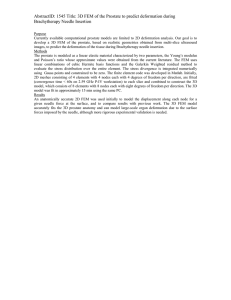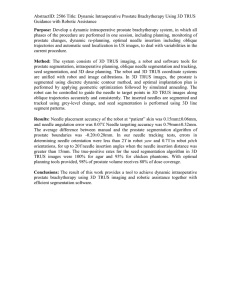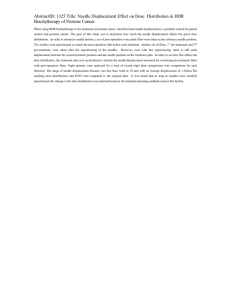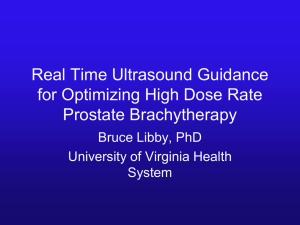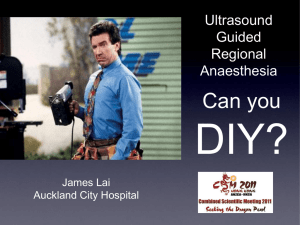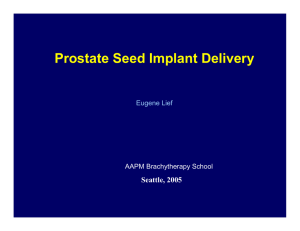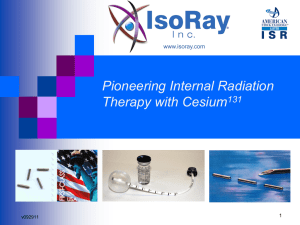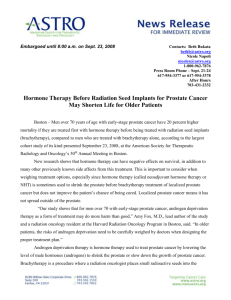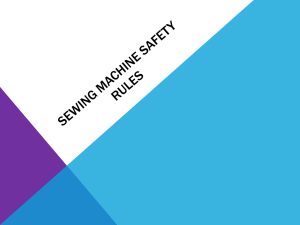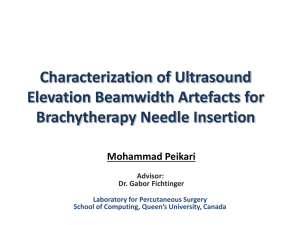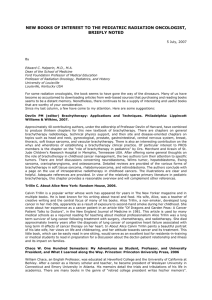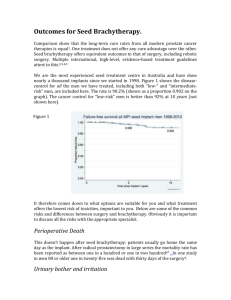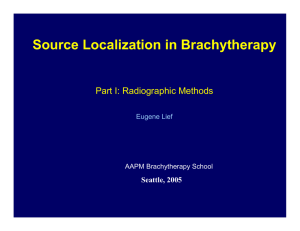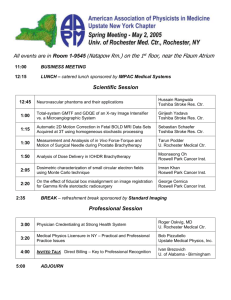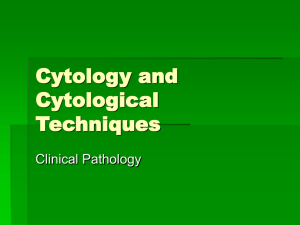Ultrasound Guided Robotics for Prostate Brachytherapy.ppt
advertisement
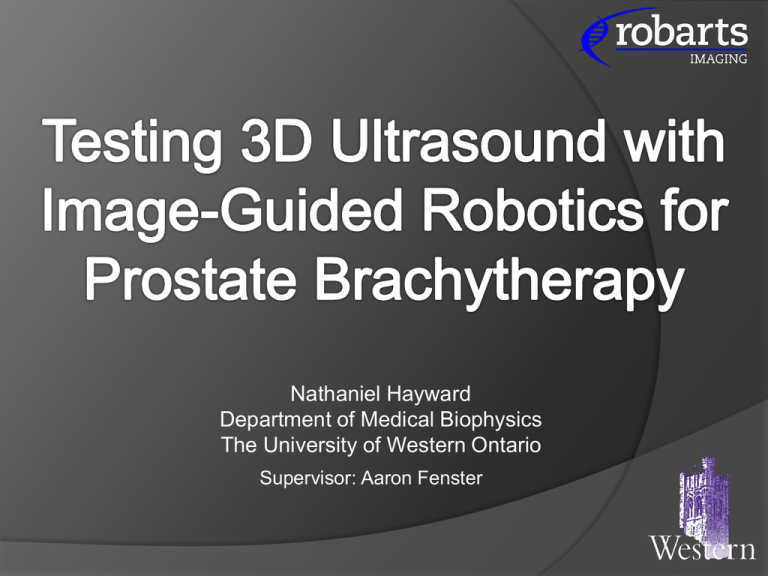
Nathaniel Hayward Department of Medical Biophysics The University of Western Ontario Supervisor: Aaron Fenster • The most commmon non-skin cancer among Canadian men • 25, 500 men will be diagnosed this year •4, 400 of these cases will be fatal •Treatments of Prostate Cancer • Irradiation of Prostate Externally: •Troubled Urination, Irritation • Complete Prostatectomy: •Incontinence, Impotence, Altered Bowel Habits •Prostate Brachytherapy: • Troubled Urination (Short-Term),Impotence Standard Brachytherapy Procedures Needle Pre-Loaded with Iodine25 Seeds Bladder • Used to treat early localised prostate cancer tumours •Utilises implantation of radioactive seeds •Seeds deliver a local high-dose radiation that decreases •Less damaging than other irradiation techniques as the seeds are implanted directly into the prostate Standard Brachytherapy Procedures 3-D Ultrasound Method • Sound Waves sent and received at different angles •Returning echoes are processed by a computer which reconstructs a 3-D image •Works much like a CT scan that utilises multiple x-rays (true image) Standard Brachytherapy Procedures Image Quality vs. Real-Time • There is a trade-off between quality and how fast the image is processed. • Why is this important? The Problem • Needles are guided parallel to TRUS transducer •5mm increments limit lateral positioning •Prostate changes position during procedure • Need constant adjustment, Labour intensive for physician •Enlarge Prostates – sections occluded by patients pubic arch •Parallel insertion completely miss these areas and lead to insufficient dose coverage • Allows for testing of brachytherapy procedures •Prostate mold is cast from a stereo-lithograph of a real patient •Mold injected with molten agar and left to cool (Clear) •Background agar is created to fill the rest of the box (Opaque) The Solution •Image-guided robotics receiving real-time updates •Removes problem of pubic arch interference •Previous Attempts have distinct advantages •Respective procedures are still invasive •Current project utilises physician •Robot loads, and positions needle Needle Needle Robot Accuracy MTE CT n CT i 1 D ( a i , b i [ 0 ]) n MTE US n i 1 US D ( a i , b i [ 0 ]) n •Evaluation of Mean Target Accuracy involves: a) Guide the needle to a 3D target b) Record the location of the needle within the image NGE n i 1 D (ai , b n CT i ) NLE n i 1 CT D (bi n TRUS ,b i ) Needle Accuracy vs. Resolution Robot Accuracy • Needle accuracy of actual target vs. “true” measurement and measurement using 3D-guided Robotics Future Work • Testing on human subjects •Give a better feel for different sized prostates and accuracies • Reduce the size of the robot •Portability, Improve physician accuracy • Improve design to work with larger angles •Increases success of brachytherapy especially in patients with enlarged prostates Acknowledgements • Aaron Fenster - Supervisor •Adam Krasinski- Supervisor • Jeffrey Bax •David Smith •Laura Bartha •Jacques Montreuil •Shi Sherebrin •Lori Gardi •Chandima Edirisinghe References • Bax J, Fenster A, Montreuil J, Gardi L, Smith D. Apparatus And Method For Guiding Insertion of a Medical Tool. US Patent Application No: 11/427,121: Filed June 28, 2007 (Pending). • Fenster A, Downey DB, Cardinal HN. Three-dimensional ultrasound imaging. Physics in Medicine & Biology. 2001 ;46R67-R99. •D.W. Rickey, P.A. Picot, D.A. Christopher, and A. Fenster, “A Wall-less Vessel Phantom for Doppler Ultrasound Studies,” Ultrasound in Med. & Biol 21(9), pp.1163-1176, 1995.
